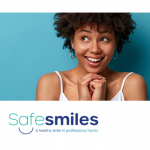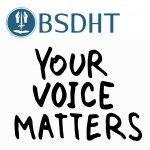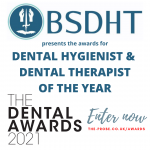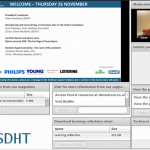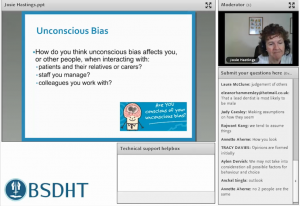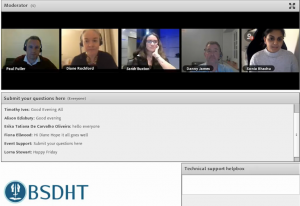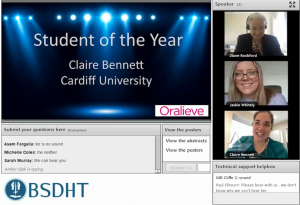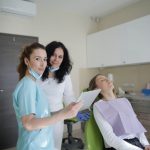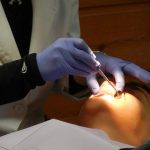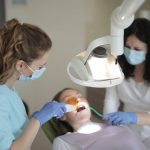The British Orthodontic Society and The Oral Health Foundation are launching a new campaign to help patients make safer choices when it comes to their dental treatment
The public awareness campaign, named Safe Smiles, will highlight the benefits of safe dentistry and treatment when carried out in dental practices by trained and registered professionals.
Safe Smiles is a dental sector response to concerns about the growth of direct-to-consumer alternatives, with the campaign’s two organisers worried about patients performing treatments at home – potentially putting themselves in danger.
The campaign was announced at this year’s British Orthodontic Society’s annual conference (16 September) in Manchester, in a joint press conference between the Oral Health Foundation and the British Orthodontic Society.
Recent research by the Oral Health Foundation reveals one-in-four (25%) UK households have opted for some form of DIY dentistry during lockdown.
The nationwide study also shows over half (55%) of adults feel they have neglected their teeth during lockdown. Around one-in-seven (15%) admit to not brushing their teeth as much as before the pandemic. One-in-five (20%) are eating unhealthier foods, and more than one-in-ten (11%) have been drinking more alcohol. 1
Dr Nigel Carter, Chief Executive of the Oral Health Foundation is worried the potential decline in oral health status may lead to poor consumer choices, with many favouring shortcuts and attracted by direct-to-consumer alternatives.
Dr Carter says: “We are really concerned by evidence suggesting the UK’s oral health habits have declined during the pandemic. Symptoms associated with dental disease – mainly pain and changes in visual appearance – are leading patients to seek quick and cheap home cosmetic treatments advertised online. This is a great cause for concern and one of the key driving forces behind Safe Smiles.
“Dental treatment of any kind must involve face-to-face contact with a trained clinical professional inside the dental practice. This is to ensure patient safety and the most effective treatment. It is important that the profession continues to champion safe dentistry and advise patients against direct-to-consumer treatments and alternatives shared on social media.
“When carried out correctly, cosmetic dental treatment can give patients the white, straight and confident smile they have always dreamed about. Safe Smiles will make sure patients are given the very best advice about the safest and most effective way to have dental treatment.”
Further findings from The British Orthodontic Society suggest that adults have become more conscious of their smile during lockdown. Over half of orthodontists (60%) say they have seen a larger than expected demand for treatment during the pandemic. It is suspected those affected could be looking for solutions to treat dental problems and improve the appearance of their smile.
Speaking at the launch of the campaign, Anshu Sood, Director of Clinical Practice at the British Orthodontic Society, says: “We’re delighted to be extending our long-standing campaign with the Oral Health Foundation. It’s heartening to see overwhelming endorsement from the dental sector. This couldn’t be more timely. Our recent stats revealed the pandemic has seen a rise in the number of people seeking orthodontic treatment. With this demand comes a growth in online companies offering treatments.
“Embarking on treatment without seeing a suitably trained clinician could result in serious conditions being missed or dangerous treatment carried out. We want to ensure patients have the very best advice about the safest and most effective way to have treatment. We know that, when carried out correctly, orthodontic treatment can have a positive and life-changing impact.”
Data shows that more than four-in-five (84%) UK adults want to change something about their smile. Over the next year, more than one-in-three (35%) are thinking about having their teeth whitened while around one-in-six (16%) are considering orthodontic treatment. 1
Safe Smiles will be asking all patients considering treatments to visit dental practices in the UK and have treatment carried out by clinicians registered with the GDC.
The campaign will tackle the dangers associated with dental tourism, inappropriately fitting mouthguards bought online, as well as harmful aesthetic changes to the mouth like lip tattoos, oral piercings, tooth jewellery, modifications and grillz.
The new campaign is being supported by Align Technology and has gathered support from across the dental world. The campaign has already received endorsement from the British Dental Industry Association, British Academy of Cosmetic Dentistry, British Dental Bleaching Society, British Society of Dental Hygiene and Therapy, British Association of Dental Nurses, and British Association of Dental Therapists.
Edmund Proffitt, BDIA Chief Executive, says: “The British Dental Industry Association is delighted to be supporting Safe Smiles. With ever growing interest in cosmetic dental work, the dental industry feels that it is very important that patients can achieve a healthy smile in a safe environment. Be it orthodontic work, tooth whitening or any other aesthetic dental treatment, working with trained dental professionals within a dental practice is a great way to get safe and effective treatment.
“With some unsafe and unregulated online and ‘do-it-yourself’ treatments available, and unfortunately, a number of unregulated practitioners offering treatments, we thoroughly recommend that patients engage directly with dental professionals to get the best, safest healthy smile.”
Jacqui Elsden, BADN President: “We’re thrilled to be supporting safe smiles. With the rise in popularity of unsafe do it yourself treatments and unregulated providers, we hope that this campaign will help patients become more aware of these dangers and think twice before they purchase them. We recommend that patients engage in this initiative and take steps to safely pursue treatment options.”
Zaki Kanaan, Chairman of the British Dental Bleaching Society: “There is no doubt that one of the most common cosmetic dental procedures that is carried out routinely in dental practices is tooth whitening. Done properly, by a dental care professional, tooth whitening is one of the least invasive ways to improve one’s smile. This popularity has led to the growth of direct-to-consumer options that often get around the legality by using non-peroxide based products that not only have little to no efficacy in whitening one’s teeth but many OTC products are in fact harmful to teeth and their surrounding structures. Members of the public seeking OTC products are leaving themselves open to harm with virtually no recourse when things go wrong. Over many years at The British Dental Bleaching Society we have been striving to highlight to the public this exact issue and we therefore fully support The Safe Smiles Campaign.”
A special toolkit has been created to help dental professionals support the campaign and share the importance of safe dentistry.
The toolkit is available on the campaign website at www.dentalhealth.org/safesmiles.
Reference:
- ORAL HEALTH FOUNDATION (2020) ‘National Dental Survey’ Atomik Research. UK. Sample 2,004.




